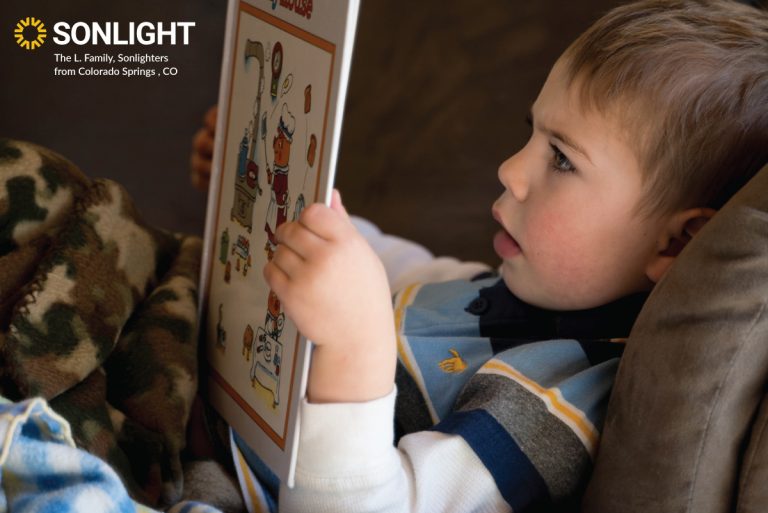Imagine you grew up in an ancient indigenous culture with no books, no computers, no electricity. How would you have spent your evenings?
Perhaps around a fire, listening to stories.
Most cultures around the world have passed on their values and history through stories for centuries. They continue to share stories even today. Children grow up hearing legends that show what it means to be a hero or coward, wise or foolish. They learn their cultural history. Stories teach them how the world works.
And yet today, many schools are pushing for more information at the expense of learning through stories. I recently heard of a school district moving entirely to computer modules for education. Now, it's not the computers that are the problem, per se. It's how some want to use them. Each child will sit in front of a computer and go through modules to acquire the "knowledge they need." I imagine the teachers will feel demoted to the role of babysitters.
I'd rather apply a lesson from history and embrace the fact that children (and adults) love good stories. In fact, Jesus relied on stories to teach. As the master storyteller, He told stories with the stuff of everyday life: bread, yeast, vineyards, shepherds, families. And so He shared the ways of God's Kingdom with His listeners.
Aesop is another example. His fables are shared with children around the world. Stories with deeper lessons can be powerful. As a literature-rich educational company, Sonlight relies on this fact.
What Makes a Good Story?
So what makes for a good story? What gives a story power?
Personally, I'd say: Compelling characters facing realistic situations in ways in which I can relate. Realistic, of course, can span worlds with mythical creatures, indestructible characters, and other elements so far outside of reality that there's nothing realistic about them. What I need, instead, is a consistency in that world and connection between this world and the one I'm entering.
The books I had the privilege to enjoy as part of my homeschooling education with Sonlight dripped with a reality that often pointed to a deeper one. The stories were compelling, the characters felt real, and the truths these stories implanted in me stick to this day. The stories included in every Sonlight History / Bible / Literature program have power behind them.
Sonlight's Reliance on Storytelling
The power of stories is why Sonlight relies so much on great storytelling. We have a choice for our children. We can force-feed them isolated information through dry textbooks or computer programs. Or we can help them love the process of learning and soak up knowledge like a sponge through great books with great stories.
Sonlight lets you interact with your children the way elders and youth have interacted for millennia. You get to tell great stories by reading aloud, and your kids get to learn how the world works.
- They learn about history from the viewpoint of people who lived it.
- They learn what a hero looks like.
- They get to ask questions.
- And you, as a wise elder in their lives, get to answer those questions and help your children make sense of everything around them.
The Importance of Story to Christians
Did you know that some religions believe in a cyclical model of time? Hindus and Buddhists, for example, generally think that time has no beginning and no end, but just moves in huge repeating cycles.
But Westerners tend to see history as linear. Christians certainly believe that we live in the midst of a story moving forward. We believe history had a beginning, moves through time, and will have an end point. And not just that. As Christians, we believe we are moving through time with a purpose. God is working out a grand plan of redemption.
Why does it matter?
To Know Our Place in History
I believe children need to know where we are in the story in order to make sense of life. I want our children to know that we are in the period of time between Christ's first coming and His return. The incarnate Christ returned to heaven, and we are His representatives on earth now. He has given us the Holy Spirit to work through us and guide us as we labor to bring God's Kingdom to earth. We are part of God's big plan; we have a role to play, a purpose for living, and a call to serve. We can partner with God, or not. He will work His plan out with or without us. May we and our children be people who help God's kingdom advance.
And the story is moving forward! Though we don't know the exact timeline, we do know we are moving to an end point where Christ returns and ultimately redeems His people. He will establish His kingdom in full and we will live forever in perfect communion with Him in the new heaven and new earth. How can this not affect how we live today?
History Is a Story
This concept of being in a story leads Sonlight to emphasize the study of history. Because we believe we live in the midst of a story, Sonlight creates programs that help children know where they fit in with the big picture of civilizations and God's work in this specific world. For example, children need to know that life has not always been as it is now. Their nation has not existed forever. Civilizations have risen and fallen over time, gradually forming the world as we know it now.
Each School Year Focuses on a Particular Theme of History
Nearly every Sonlight program centers on a history theme. With the Sonlight scope and sequence of world history, American history, and church history, your children will get the big-picture, chronological view of how we got where we are today. I think this way of learning helps kids make sense of the world around them. I also think it helps children develop critical thinking, understand other cultures, and be inspired to live meaningful lives.
I can get pretty excited about history. If we are part of a story, we must have a part to play! May we inspire our children to find their role in God's kingdom and live out the story to which He has called them.









